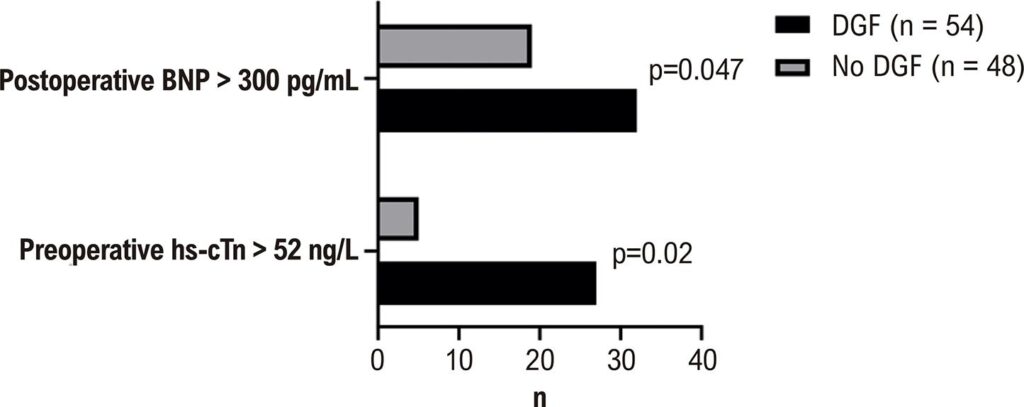Arq. Bras. Cardiol. 2024; 121(11): e20230858
Predictive Value of Cardiac Biomarkers on Delayed Graft Function in Renal Transplant Patients
Introduction
Cardiovascular (CV) disease is the leading cause of death among adult kidney transplant recipients, accounting for 25% of deaths in patients with functioning grafts. Cardiac biomarkers, in particular, brain natriuretic peptide (BNP) and cardiac troponin (cTn), are the most studied biomarkers for predicting the risk of major adverse cardiovascular events (MACE) in end-stage kidney disease and kidney transplant.,
Myocardial injury after non-cardiac surgery (MINS) is a new clinical entity with relevant clinical and prognostic implications. It is defined as ischemic myocardial injury until 30 days after non-cardiac surgery and is independently associated with increased mortality. PJ Devereaux et al. evaluated the cohort of the VISION study, which involved the assessment of perioperative cTn and BNP on more than 20.000 patients, but without a representative number of renal transplant patients.
[…]
Keywords: Biomarkers; Kidney Transplantation; Perioperative Care
300

